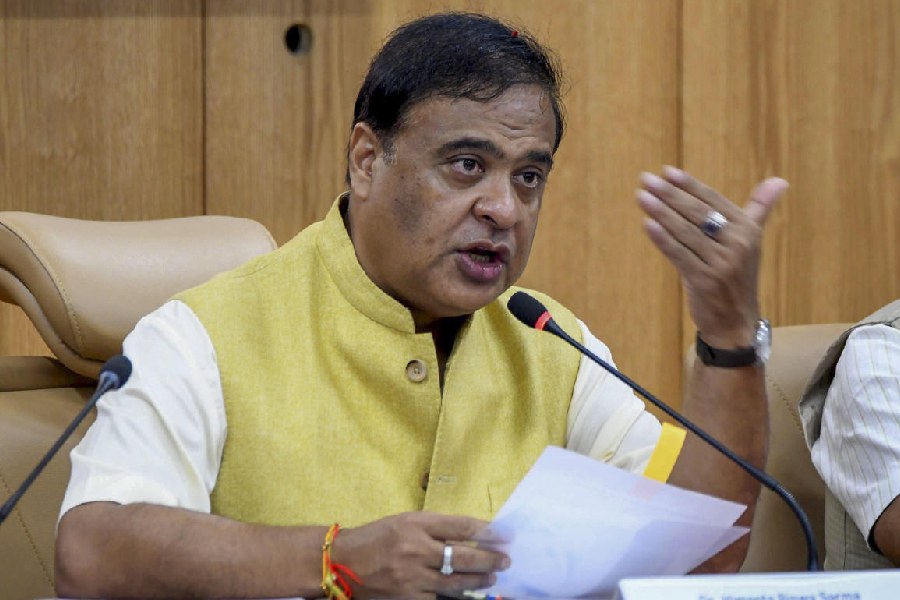Sam Manekshaw (1914 - 2008 )
New Delhi, June 27: By the time the Great Mule finally kicked him in Wellington last night, Field Marshal Sam Manekshaw had transcended the line between legend and myth. It’s been a lark of a trip.
He was a legend when he said “No” to Indira Gandhi and refused to go to war in April 1971 and then, eight months later, delivered modern India’s greatest military victory.
 |
Sam Bahadur has been in and out of the military hospital in Wellington for much of the last five years. He’s been in and out of a coma, prepared to die, never looking forward to it, adept at dodging his Maker with a feint here and a shove there for much of his life.
It surprised him no less than others that he should be able to exhibit such zest, such a lust for life that it should conceal the horrible, calculated working of a military mind.
Four corps of the army he commanded converged on Dhaka from four directions and, aided by the Mukti Bahini, forced the surrender of the Pakistani army and helped create a new nation.
In the most celebrated military photograph showing Pakistan’s Lt General A.A.K. Niazi signing the instrument of surrender on December 16, 1971, the general who crafted the victory is absent.
He was in Delhi, twirling a waxed moustache and guffawing. Did he really tell Indira Gandhi “Sweetie, I told you so?” — we’ll never know now.
We know of course that subsequent generals had not learnt to say “No” when it mattered most, for example, in 2001, when India’s Prime Minister ordered the army to mobilise for a war that was never intended.
Thirty years on from 1971, the generals quietly agreed to march the entire soldiery into a political game, not daring to point out how foolhardy it is to expose military assets when you do not intend going into battle.
Myths have been woven about Manekshaw’s flamboyant personality since the time he was conferred the rank of field marshal in 1973. Myths are necessary to the military in India because real life is boring.
Manekshaw was not prepared for the honours that came his way. You can bet he did not dream of getting a state funeral — like the government has today decided to accord to him “in a rare gesture” — when he died.
For, decades before he was made field marshal, Manekshaw, the first Indian Military Academy cadet to be punished for weekend excess on “liberty”, was prepared to die when he was only 28 years of age.
He took bullets in his body in Burma in 1942 — and lived a decade and more for each of the nine pieces of lead. When the Australian surgeon asked him what had wasted him so, Manekshaw replied: “A bloody mule kicked me.” After that, the doctor was determined. “By Jove,” he said, “you have a sense of humour; I think you are worth saving.”
If leadership sat lightly on the general who exemplified it, it was because the man couldn’t stop having a good laugh at the world, his times and himself, in that order. He waged war, yes — and war is horrible because you kill or get killed or plot to kill and it is macabre and all of that — but Manekshaw almost spotted a sport in it.
If you must be a professional soldier, paid to kill or get killed, it is just as well that you should go about the nasty business with a head swilling in Dimple scotch whisky.
Manekshaw’s nasha has been infectious. He allegedly called Indira Gandhi “sweetie” in 1971 and, a few months back, called septuagenarian President A.P.J. Abdul Kalam, who went to meet him, “a baby”. Kalam had gone to gift him the arrears of salary totalling more than Rs 1 crore, much of which had accrued when politicians were suspicious of the field marshal and he was being victimised for a cavalier attitude towards India’s rulers.
The provocation, apparently, was a newspaper interview in which he said had he chosen to go to Pakistan at the time of Partition, India would not have won the 1971 war. Parliament members of the time (1972) found in that statement an element of disloyalty when, in fact, it was reflecting a professional military mind.
Seeds of suspicion were sown again in 2005 when Gohar Ayub Khan, former Pakistan governor and son of Pakistan’s General Ayub Khan, insinuated that Manekshaw, as an officer of the Directorate of Military Operations in 1948, had leaked plans for the 1965 war.
Gohar Ayub Khan never named Manekshaw but maintained that the officer was still alive and that his wife had a fondness for gardening. Manekshaw’s wife Siloo died in 2001.
Despite the army protestations, few Indian politicians rose up and asked how it was that Pakistan lost the 1965 war despite getting hold of India’s warplan?
Manekshaw, if he was aware of the controversy, never spoke a word about it and, in fact, the Indian Army was even shy of uttering that it was to their field marshal that the Pakistani politician was referring.
Now that Manekshaw is no more, Gohar Ayub’s views should be all the more interesting. But the field marshal has left no one in doubt about what he thought of India’s politicians — though he did tell Indira Gandhi who was afraid he was planning a coup that he was happy running the army without having to shoulder the burden of running the country.
He said: “I wonder whether those of our political masters who have been put in charge of the defence of the country can distinguish a mortar from a motor; a gun from a howitzer; a guerrilla from a gorilla — although a great many of them in the past have resembled the latter.”
Manekshaw refused to take ambassadorships and gubernatorial positions since his retirement. His biggest prize probably came only in April this year, when he was given the news that Bangladesh hosted 10 Indian generals he had commanded in the 1971 war, and finally acknowledged the role of the Indian Army in the creation of that nation.
Sam Hormusji Framji Jamshedji Manekshaw a.k.a Sam Bahadur R.I.P.










